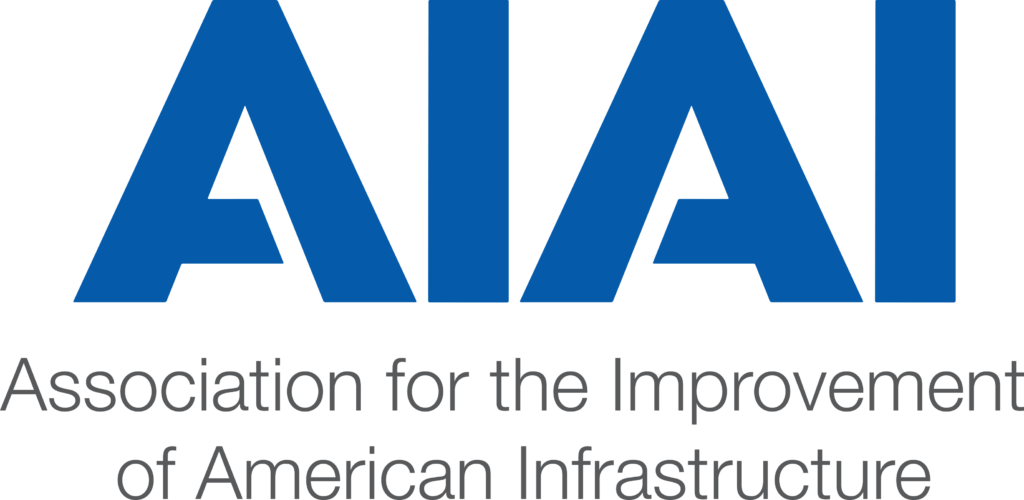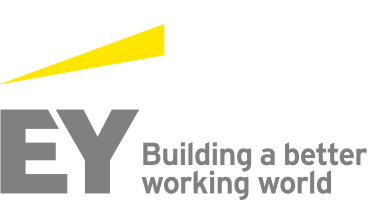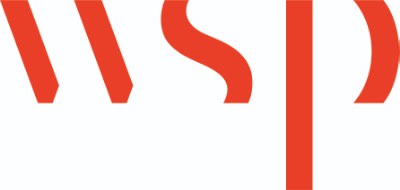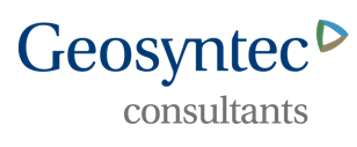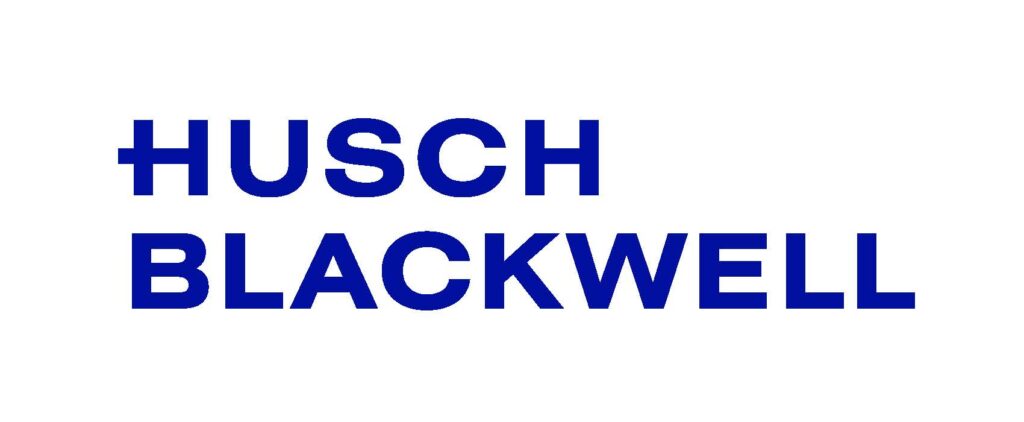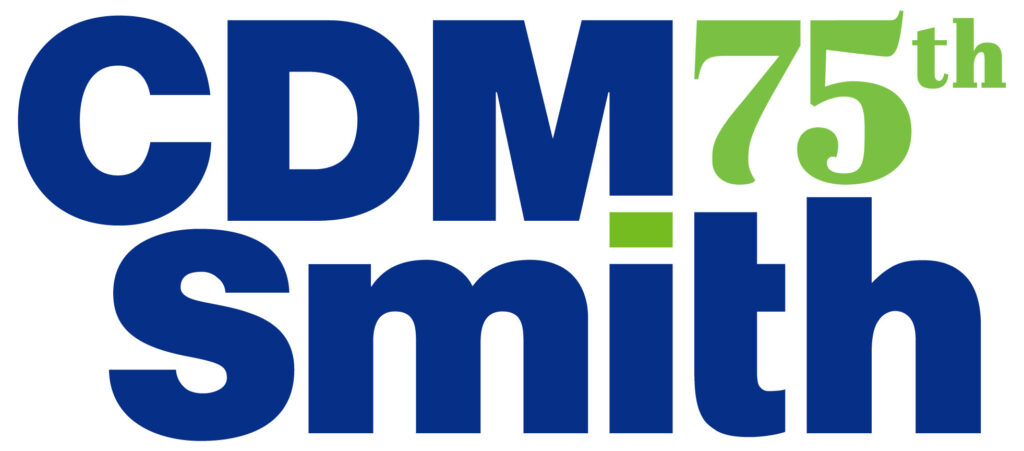2022 Preliminary Agenda
Thursday, Apr 07
-
7:00 am — 5:30 pm
Summit Check-In & Registration
Grand Hall Foyer -
7:30 am — 8:45 am
P3 101 Breakfast Workshop (Open to Public Agency Attendees Only | Advanced Registration Required)
Grand Hall CJoin industry leaders and AIAI members for breakfast and an interactive conversation specifically tailored to the needs of water agencies. This pre-Summit session is designed for those beginning to explore P3s to gain a better understanding of where they can be applicable. Learn about when P3s do and do not make sense to advance, the major considerations that need to be made when choosing this route, how the model can save money and time when dealing with system repairs and maintenance, and some crucial first steps.
Presenters:Brian Shell, Assistant Vice President, Service Area Manager, Water & Energy Alternative Delivery Advisory Services, WSPHenry Patel, Vice President, Asset Development, KiewitJennifer Bales Drake, Shareholder, Becker & PoliakoffMark Moore, Business Development Director, InvesisStephen Auton-Smith, Senior Managing Director, Ernst & Young Infrastructure Advisors, LLC -
9:00 am — 9:15 am
Summit Start: Welcome & Opening Remarks
Grand Hall ASummit attendees will be welcomed by Mayor Todd Gloria, the 37th and current mayor of our host city, San Diego.
-
9:15 am — 10:00 am
Opening Plenary: Water Infrastructure – State of the Nation: Post-COVID, ARP and IIJA
Grand Hall AAs the country seeks to turn the corner on the worst public health crisis in a century, there has been a renewed focus on the value of water and wastewater infrastructure and services, both as a long-term driver of public health, environmental quality, and climate resilience, but also as an important part of a socially equitable economic recovery – reflected in the prominence of water in both ARP and IIJA (Infrastructure Investment and Jobs Act).
This panel brings together luminaries from across the sector to share their thoughts on what this new landscape means for municipal utilities, the challenges that remain, and the actions that should be considered to make the most of this once in a generation opportunity.
Moderator:Stephen Auton-Smith, Senior Managing Director, Ernst & Young Infrastructure Advisors, LLCPanelists:Adam Krantz, CEO, National Association of Clean Water AgenciesAdel Hagekhalil, CEO & General Manager, Metropolitan Water District of Southern CaliforniaKen Lykens, General Manager, Meridian Metropolitan DistrictMohsen Mortada, CEO, 3i StrategiesRenee Willette, Vice President, Programs and Strategy, US Water Alliance -
10:00 am — 10:45 am
Opening Fireside Chat: Cybersecurity and What It Means for You – A Conversation with Dr. David Mussington, CISA
Grand Hall ADr. David Mussington, Executive Assistant Director of Infrastructure Security at the Cybersecurity and Infrastructure Security Agency (CISA), is charged by President Biden with devising policies and procedures to protect our nation’s critical infrastructure from cyber attacks. In our fireside chat, Dr. Mussington will outline what steps the Administration is taking and how the Federal Government can work with the private sector to prevent infiltration by international actors and rogue elements. Lucian Niemeyer, former Assistant Secretary of Defense for Energy, Installations and Environment, is one of the nation’s leading cybersecurity experts. He will lead the conversation with Dr. Mussington as they explore a variety of topics including the impact of President Biden’s Executive Order to improve U.S. cybersecurity and whether or not local water utilities have the resources they need to protect their infrastructure. In order to be successful, utilities must first understand the threat and the range of possible solutions. What is the Federal role and how can the private sector be a resource to improve the capabilities of local water systems. How do water utilities obtain the latest technology and do they have the staff to implement it?
-
10:45 am — 11:00 am
Networking Coffee Break
Expo Hall - Grand Hall B -
11:00 am — 12:00 pm
Cybersecurity: Implications and Guidance from the Front Lines
Grand Hall AThis panel will feature several practitioners working on the tough topic of cybersecurity in water and wastewater utilities. The conversation will be focused around what key utilities are doing to address the topic, how utilities can wisely go beyond the minimum and realize real value from proactive and intentional cybersecurity planning, and offers views on what’s to come in the cybersecurity regulatory arena. This session also will include an overview from AWWA of their Cybersecurity Guidance and Assessment Tool.
-
11:00 am — 12:00 pm
Modernizing America’s (Stormwater) Infrastructure: Focusing on People and Procurement
Grand Hall DThe 2021 infrastructure bill contains an historic investment of over $50 billion for the national water infrastructure. In an era of dramatic climatic challenges and focus on social equity, building transformative infrastructure projects needs to include emphasis on modernizing workforce development systems and procurement techniques. In this panel, we will discuss the opportunities contained within the infrastructure bill for stormwater infrastructure and public private partnerships, discuss procurement techniques and workforce development aspects of newer delivery/financing models.
Moderator:Sanjiv K. Sinha, Ph.D., Chief Sustainability Officer, Environmental Consulting & Technology, Inc. (ECT)Panelists:Ellory Monks, Co-Founder, The AtlasKevin Shafer, Executive Director, Milwaukee Metropolitan Sewerage DistrictMichael Deane, Chief, Clean Water State Revolving Fund, U.S. EPA -
11:00 am — 12:15 pm
P3Direct Bootcamp: Finance (Open to Public Agency Attendees Only | Advanced Registration Required)
Grand Hall COne of three P3Direct boot camps, this conversation will focus on the use of WIFIA, taxable debt, and other financing tools.
-
12:00 pm — 1:00 pm
Networking Lunch
Expo Hall - Grand Hall B -
1:00 pm — 2:00 pm
Let WIFIA Financing Work for You!
Grand Hall ALooking ahead at an expansive funding landscape for infrastructure projects, how can WIFIA financing work for you? This panel will feature a mix of borrowers, consultants, and project sponsors intimately involved with WIFIA financing for their projects. They represent utilities that leveraged multi-community partnerships, unique organizational structures, and collaborative delivery approaches, as well as innovative WIFIA financing structures, to achieve the mission of affordable clean and safe water. The panel members will share their stories, what made WIFIA financing desirable, and their experiences working with the WIFIA team.
Moderator:Francesca McCann, Business Development Director, iMG (a Black & Veatch Company)Panelists:John Shockley, General Counsel, Ohnstad Law (Metro Flood Diversion Authority)Jorianne Jernberg, WIFIA Program Director, U.S. EPAKaren Jassoy, CFO, Padre Dam Municipal Water District (East County Advanced Water Purification Joint Powers Authority)Matt Anderson, CFO, SVCW - Silicon Valley Clean WaterVyto Kaunelis, Principal, OHM Advisors (System Manager, Downriver Utility Water Authority (DUWA) -
1:00 pm — 2:00 pm
Surf’s Up – Is It Time to Ride the Progressive Wave?
Grand Hall CThe “progressive” project delivery model has become the predominant delivery method in the design-build sector and is becoming increasingly popular for use in the PPP sector as well. This panel will consist of a leading design-build company representative and an owner’s legal advisor who will provide their unique perspectives on the drivers for the groundswell in favor of this collaborative delivery model, as well as the advantages and challenges of such delivery method as compared to more traditional fixed price design-build and PPP project delivery. The panel members will draw upon their project experiences to illustrate many of the significant issues that should be considered by project owners as they plan future capital projects.
-
1:00 pm — 2:00 pm
Changing the Game: How P3 Supports the Water-ESG Nexus
Grand Hall DBeyond just carbon, water and resource recovery are increasingly important components of corporate ESG and decarbonization strategies. Water utilities and Resource Recovery Facilities have been leaders in the environmental movement for decades. But, how do P3 arrangements further the water-ESG nexus? This panel will identify how water and wastewater projects align with and potentially satisfy the needs of other ESG-seeking industries, identify pathways for key strategic alignment for projects that tackle climate issues, and open the door to investment and funding through market partnerships. Primary opportunity areas include:
- De-risking Renewables (especially digester gas)
- Leveraging improved analytics to reduce the cost of Collection System Overflows (CSOs) compliance
- Nutrient Recovery, Nature Positive & Green Infrastructure
- Net Water Positive & Scarcity Solutions, including Non-Revenue Water Strategies
Moderator:Mandy Sheposh, P.E., BCEE, Business Development Leader, Wastewater and BioEnergy, Johnson ControlsPanelists:Andy Prindle, Co-Portfolio Manager and Head of Origination, Foundation Infrastructure OpportunitiesJoel Knight, P.E., Chief Revenue Officer, OptimaticsKarri Ving, Business Strategy and Performance Manager, Wastewater Enterprise, San Francisco Public Utilities CommissionPhillip Lowery, Executive Director, Water Resiliency & BioEnergy, Johnson Controls -
2:00 pm — 3:00 pm
Federal Water Infrastructure Panel
Grand Hall AWith the November 2021 passage of the Bipartisan Infrastructure Deal (BID), significant funding is being made available, in addition to federal agencies annual budget appropriations, for use in water infrastructure planning and construction. Water infrastructure programs at the Bureau of Reclamation, US EPA and the US Army Corps of Engineers all are focusing on providing financing for specific types of water infrastructure. WIFIA, Title XVI, and the WINN Act will be discussed along with asset management for federally supported water infrastructure. Representatives from each of the three federal water infrastructure agencies will participate on the panel and be available to answer questions.
-
2:00 pm — 3:00 pm
Mixing Blue and Green: P3 Water Finance and ESG
Grand Hall CThe water sector faces ongoing risks related to natural resource scarcity, climate change, protection of public health and the environment, balancing rising affordability constraints against necessary long-term investments, and securing its workforce. Using a P3 or alternative delivery approach, project owners and sponsors can implement projects with long-term environmental and equity benefits, but managing ESG is not always that simple. This panel will explore the intersections of water P3s, project finance, and ESG, and how those intersections will shape future project development.
-
2:00 pm — 3:00 pm
Delivering Environmental Justice and Building an Equitable Future through Community-Based P3s: A Case Study of Chester, PA
Grand Hall DIn 2018, the Chester Stormwater Authority partnered with Corvias Infrastructure Solutions (CIS) to develop a community-based public private partnership (CBP3) to address urban stormwater management. The program is designed to develop and implement social and economic development programs that foster local job growth and address chronic flooding as a result of aging infrastructure. To date, over $23M has been invested in green stormwater retrofits and upgrades with over 50 percent of the work being awarded to women and minority business entities. In 2021, Tropical Storm Ida hit the Philadelphia region causing major flooding damage. However, in the City of Chester water damage experienced elsewhere in the region was prevented as a result of the CBP3 that provided targeted investment in critical system upgrades and an enhanced maintenance program.
-
3:00 pm — 3:30 pm
Networking Coffee Break
Expo Hall - Grand Hall B -
3:30 pm — 4:30 pm
Successfully Implementing the Nation’s First USACE Split Delivery P3 Flood Risk Management Project
Grand Hall AThe Fargo-Moorhead Metropolitan Area Flood Risk Management Project successfully reached financial close on the $870 M diversion channel and associated infrastructure component of the overall $3B program in 2021, marking the first successful USACE split deliver P3 program under construction in the United States. Panelists will share the advantages and value realized from the perspective of the USACE, the Metro Flood Diversion Authority (non-federal sponsor) and the Red River Valley Alliance (P3 Developer) as well as key lessons learned, what’s needed for success and their thoughts on the future of P3s in the US.
-
3:30 pm — 4:30 pm
P3 Water Projects: Where is the Opportunity for the Private Sector Now that the Federal Government Has Allocated Billions of Dollars to the Water Sector?
Grand Hall CP3s have long been discussed as a potential solution to the underfunding of U.S. water infrastructure needs. The recently approved infrastructure law encourages the use of P3s as well as authorizes billions of dollars for water infrastructure projects. In this session we will discuss how P3 financing models are evolving and how a traditional project finance program compares to other P3 tools. Panelists will explore what we can we expect regarding future market activity. We will look at opportunities in water supply and water treatment, privatization of existing water systems, roll-ups to aggregate smaller projects, and funding of capital improvement programs to remedy deferred maintenance.
Moderator:Hala Titus, Senior Vice President, CDM SmithPanelists:Charles Renner, Partner, Husch BlackwellSeth Lehman, Senior Director, Global Infrastructure & Project Finance, Fitch RatingsStacy Barna, North America Funding Discipline Leader, CDM SmithStephen Auton-Smith, Senior Managing Director, Ernst & Young Infrastructure Advisors, LLC -
3:30 pm — 4:30 pm
Market Trends and Growth in the Public Water Sector (Part 1)
Grand Hall DThe public sector water market has been flat for several years even though the demand for new and or upgraded water infrastructure has continued to grow. Underground utility repair and replacement programs are substantially underfunded with many large water and wastewater utilities operating on an “as -needed basis” in the face of impending 50 year-100-year replacement cycles.
Wastewater treatment facilities have reached their useful life, having been constructed in the late 1970’s through the 1980’s with the support of the Clean Water Act Construction Grants program. Water quality standards have increased substantially, adding to the need for upgrades. Similarly, many water treatment facilities have reached their useful life and new regulatory requirements and increased public focus on the quality of drinking water. The demand for new and upgraded treatment facilities will continue for the foreseeable future.
Given the high demand for upgraded water infrastructure throughout the US, the use of new delivery methods for capital projects has never been more critical. Over the last 10-15 years, what was initially termed “Alterative Project Delivery or APD” has now become the norm for publicly owned water and wastewater utilities. The “norm” is now termed “Collaborative Delivery.” Collaborative Delivery methods include Construction Management at Risk (CMAR); Design-Build – both Progressive Design Build and Fixed Price Design-Build; and Design-Build-Operate. These collaborative delivery methods are being used by virtually all public water utilities in the US.
-
4:30 pm — 5:30 pm
Using Innovative Technology to Bring Savings to the Water-Energy Nexus
Grand Hall AThe California Energy Commission (CEC) published a final report entitled, “Demonstrating Innovative Water Leakage Reduction Strategies” in June 2021. The project team installed and evaluated the latest advances in leak detection technology, including satellite imagery leak detection. Because of the embedded energy in water pumping and treatment, reduced water loss directly correlates with reduced energy loss. Evaluation was a cooperative effort with the vendors to improve the developing tools. During the project, the team also evaluated the financial and water/energy savings benefits associated with the technologies and provided guidance for utilities to evaluate the technologies for applicability to other systems. This session will discuss the results of this study in relation to the need for innovative new technologies in the public water sector.
-
4:30 pm — 5:30 pm
Private Investment in Public Infrastructure
Grand Hall CAs cities and states look to the private sector for investment, development, and alternative delivery in the water sector, deal flow has been difficult and sparse as investment objectives and needs have not necessarily aligned. With the water sector being a target allocation from the beginning of the infrastructure investment trend, funds have found a way to find investments within their profile. This includes projects, privatizations, water utilities, operators, and other service providers in the expanded water sector that includes wastewater, biosolids, and industrial treatment. The panelists from several infrastructure funds discuss the growing involvement from the private capital, investment criteria (assets vs. services), deal originations strategy, target returns, and investment horizon.
-
4:30 pm — 5:30 pm
Infrastructure Investment and Jobs Act and Water Infrastructure: Unpacking 2021’s Historic Investment
Grand Hall DThe Infrastructure Investment and Jobs Act, now known alternately as the Bipartisan Infrastructure Law, was signed by President Biden on November 15, 2021. With one pen stroke, the outlook for US water infrastructure changed significantly – the State Revolving Funds saw an effective tripling in funding and new, large streams of investment were created to address lead service lines and emerging contaminants, among other items.
Now water advocates must shift their focus towards two things: equitable and effective implementation of IIJA’s programs and emphasizing the value of these investments so that funding levels never dip back to their wholly inadequate pre-2021 levels.
Moderator:Mae Stevens, Executive Vice President, Signal GroupPanelists:Chris Moody, MEng, PE, Regulatory Technical Manager, American Water Works AssociationJennifer Bales Drake, Shareholder, Becker & PoliakoffMichael Deane, Chief, Clean Water State Revolving Fund, U.S. EPARenee Willette, Vice President, Programs and Strategy, US Water Alliance -
5:30 pm — 7:00 pm
Opening Night Welcome Reception
Expo Hall - Grand Hall BJoin us at this special evening networking receptions for all Summit attendees. Enjoy drinks and light fare while meeting with speakers, exhibitors, and Summit delegates.
Friday, Apr 08
-
7:00 am — 2:30 pm
Summit Check-In & Registration
Grand Hall Foyer -
7:30 am — 9:00 am
P3Direct Bootcamp: Risk Allocation (Open to Public Agency Attendees Only | Advanced Registration Required)
Grand Hall CIn the second of three bootcamps, speakers representing AIAI's P3Direct program will address how risk transfer can deliver value, the types of risk, and the best practices for allocation and mitigation to ensure project success.
-
8:00 am — 9:00 am
Networking Breakfast
Expo Hall - Grand Hall B -
9:00 am — 10:00 am
Morning Plenary: Fireside Chat with Mayor Quinton Lucas, Kansas City, Missouri and Mami Hara, US Water Alliance CEO
Grand Hall AMayors and innovative water leaders are key to ensuring that their communities have high quality water programs that are delivered in a cost-effective manner. Join us for a fireside chat with Mayor Quinton Lucas of Kansas City and Mami Hara, CEO of the US Water Alliance. Mayor Lucas, who has been a leader in addressing water infrastructure in his city, will discuss how local governments can address these challenges when funds are limited. He is currently developing a solution to his city’s complex stormwater problem which primarily affects low-income neighborhoods. Prior to joining the US Water Alliance, Mami Hara’s career focused on innovative and equitable water management at the local level, including managing utilities in Philadelphia and Seattle. Mami was responsible for the groundbreaking Green Cities, Clean Waters infrastructure program in Philadelphia and is the founder of the national Green infrastructure Leadership Exchange. The conversation will explore how local leaders can ensure their communities have clean drinking water despite the lack of funding, and how mayors can prioritize water issues along with their concerns for crime, transportation and other local issues. And, how will the additional funding provided in the recent federal legislation affect how communities approach improving their water systems.
-
10:00 am — 11:00 am
Stormwater P3s: An Opportunity to bring Environment, Social, and Governance (ESG) Concepts Together with Alternative Project Delivery through Green Stormwater Infrastructure (GSI)
Grand Hall AStormwater P3s present a unique opportunity to drive environmental restoration while enhancing the quality of life and promoting business opportunities in disadvantaged communities in a streamlined and accelerated manner. The P3 construct helps manage risks associated with cost and schedule overruns but, particularly for Green Stormwater Infrastructure (GSI), it can provide some assurances on performance and longevity, particularly with operations and maintenance. Often the integration of green stormwater infrastructure (as well as the repairing, replacing, and upgrading of grey infrastructure) not only reduces impacts caused by localized flooding that affect local businesses, but also supports hydrologic resilience to climate change.
This panel will explore the linkages of P3s and ESG, and opportunities including the integration of co-benefits that meet critical city needs through innovative delivery constructs. Goals associated with Diversity, Equity, and Inclusion (DE&I) as a social need can be strategically realized through both project visioning (e.g., projects that not only address water but also provide open spaces, reduce urban heat island effects, etc.) and project delivery (e.g., utilizing small local businesses and labor). Panelists will connect potential federal funding availability with stormwater infrastructure and will explore linkages supporting environmental justice initiatives such as the Justice40 Executive Order.
Moderator:Marni von Wilpert, Councilmember, City of San DiegoPanelists:Ken Susilo, P.E., D.WRE, Managing Senior Principal, California Water Resources, GeosyntecShalini Vajjhala, Executive Director, San Diego Regional Policy & Innovation CenterTimothy Male, Executive Director, Environmental Policy Innovation Center -
10:00 am — 11:30 pm
P3Direct Bootcamp: Operations & Maintenance (Open to Public Agency Attendees Only | Advanced Registration Required)
Grand Hall CJoin AIAI'S O&M experts as we consider the benefits of long-term operations and maintenance using the P3 structure to mitigate project risks. During this interactive session, you will learn how P3 counterparties allocate and price risk, and how to approach O&M early on to drive value and appropriately address the asset’s long-term goals.
-
11:00 am — 11:30 am
Networking Coffee Break
Expo Hall - Grand Hall B -
11:30 am — 12:30 pm
Market Trends and Growth in the Public Water Sector and Where P3 Will Apply in the Future (Part 2)
Grand Hall APublic Private Partnerships (P3) have been used sparingly in the public water sector. There are several notable projects that have deployed P3 transaction structures using a Design-Build-Operate approach in combination with private sector funding for all or a portion of the capital projects.
The use of private capital, accompanied by significant risk sharing between the private party and the public owner, is the foundation of such approaches. Given the amount of private capital available to meet the ever growing capital needs for water infrastructure, these arrangements are likely to grow significantly in the future.
In late 2021 Congress passed the Infrastructure bill. The bill nearly $70+B is earmarked for funding water projects over a ten-year period. Given this increased federal funding, the future use of P3 transactions is uncertain.
This presentation will present a perspective on the growth of P3 transactions given new federal funding sources.
This session presents the most recent research conducted by the Water Collaborative Delivery Associations (formerly the Water Design-Build Council) on the growth of collaborative delivery models – why owners are pursuing them – especially the preference for progressive design-build, and a look at a potential delivery method defined as progressive P3. WCDA’s research data identifies the growth trends and the market driver’s behind them.
-
11:30 am — 12:30 pm
DRB on Tap
Grand Hall CThis workshop discusses how Dispute Resolution Boards (DRBs) have been used for many years on water related projects. By having a DRB start at the beginning of a project, the DRB can often help involved parties avoid a dispute by being proactive with the parties in getting issues settled and avoiding a dispute altogether. The conversation will provide an overview of the DRB process and how it can help avoid disputes or get them settled in a timely and efficient manner. Disputes and claims have been a part of construction projects for many years and oftentimes drag out well after the completion of the project, tying up valuable resources and adding costs. Actively managing the dispute or claim or, even better yet, helping avoid the claim or dispute entirely, saves time and money for all the parties involved.
-
12:30 pm — 1:30 pm
Networking Lunch
Expo Hall - Grand Hall B -
1:30 pm — 2:30 pm
Closing Session: P3 Questions & Answers Discussion Session: What Are the Next Steps? Where Do We Go from Here?
Grand Hall AIn the Summit’s closing session, this conversation will address audience questions on subjects raised during the conference. Attendees will have the opportunity to submit their questions in advance and also join in the discussion on the benefits, values, and applications of alternative delivery approaches.
Click here to register for this session.
-
2:30 pm — 2:30 pm
Summit Ends
